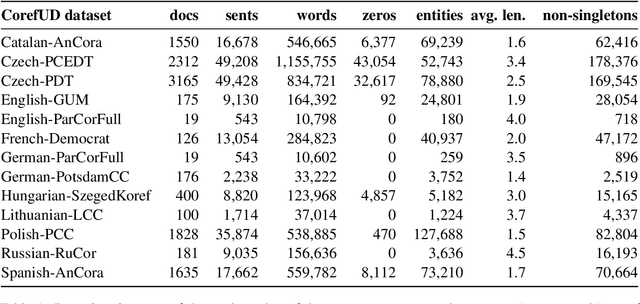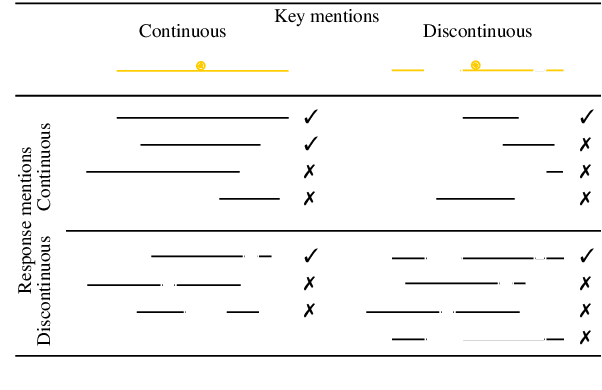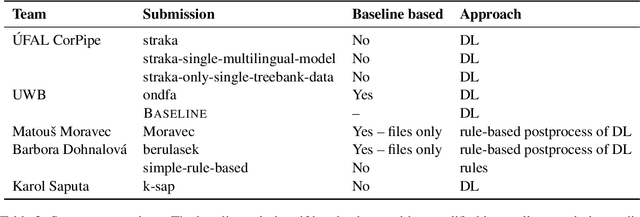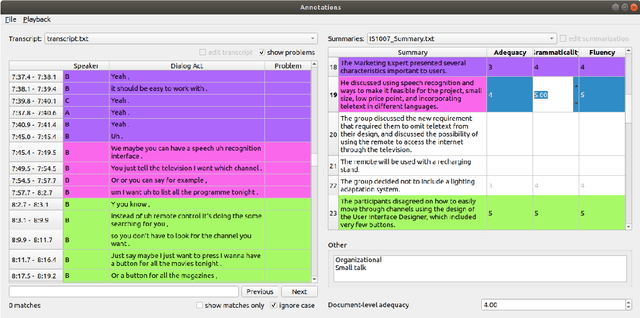Anna Nedoluzhko
Findings of the Third Shared Task on Multilingual Coreference Resolution
Oct 21, 2024Abstract:The paper presents an overview of the third edition of the shared task on multilingual coreference resolution, held as part of the CRAC 2024 workshop. Similarly to the previous two editions, the participants were challenged to develop systems capable of identifying mentions and clustering them based on identity coreference. This year's edition took another step towards real-world application by not providing participants with gold slots for zero anaphora, increasing the task's complexity and realism. In addition, the shared task was expanded to include a more diverse set of languages, with a particular focus on historical languages. The training and evaluation data were drawn from version 1.2 of the multilingual collection of harmonized coreference resources CorefUD, encompassing 21 datasets across 15 languages. 6 systems competed in this shared task.
Findings of the Shared Task on Multilingual Coreference Resolution
Sep 16, 2022



Abstract:This paper presents an overview of the shared task on multilingual coreference resolution associated with the CRAC 2022 workshop. Shared task participants were supposed to develop trainable systems capable of identifying mentions and clustering them according to identity coreference. The public edition of CorefUD 1.0, which contains 13 datasets for 10 languages, was used as the source of training and evaluation data. The CoNLL score used in previous coreference-oriented shared tasks was used as the main evaluation metric. There were 8 coreference prediction systems submitted by 5 participating teams; in addition, there was a competitive Transformer-based baseline system provided by the organizers at the beginning of the shared task. The winner system outperformed the baseline by 12 percentage points (in terms of the CoNLL scores averaged across all datasets for individual languages).
ALIGNMEET: A Comprehensive Tool for Meeting Annotation, Alignment, and Evaluation
May 11, 2022



Abstract:Summarization is a challenging problem, and even more challenging is to manually create, correct, and evaluate the summaries. The severity of the problem grows when the inputs are multi-party dialogues in a meeting setup. To facilitate the research in this area, we present ALIGNMEET, a comprehensive tool for meeting annotation, alignment, and evaluation. The tool aims to provide an efficient and clear interface for fast annotation while mitigating the risk of introducing errors. Moreover, we add an evaluation mode that enables a comprehensive quality evaluation of meeting minutes. To the best of our knowledge, there is no such tool available. We release the tool as open source. It is also directly installable from PyPI.
 Add to Chrome
Add to Chrome Add to Firefox
Add to Firefox Add to Edge
Add to Edge